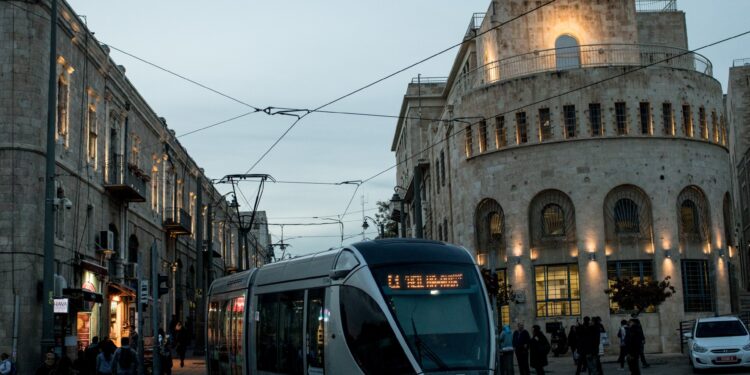Plans to expand Jerusalem’s light rail system face significant delays, due to geopolitical tensions, violent protests and logistical challenges.
Globes newspaper quoted informed sources as saying that the Green Line, which was originally scheduled to open next year, will be postponed until March 2026, and the extension of the Red Line, initially scheduled for July 2023, will not be operational before November 2024.
reasons of delay
The delay is attributed to a combination of factors, including the ongoing war in the Gaza Strip, violent protests by some ultra-Orthodox Jewish groups, and logistical issues such as a lack of manpower, Globes reported.
The Green Line, which runs from Mount Scopus to Gilo, and the Red Line, which runs from Pisgat Ze’ev to Neve Yaakov and Hadassah Hospital Ein Kerem, were affected. Globes said Shapir Engineering and Industries and the Spanish company CAF, which is responsible for these projects, have faced numerous setbacks.
Shapiro cited manpower shortages as a critical problem, with many workers being called up to join the army reserves and others leaving the country, the newspaper reported.
Meanwhile, violent protests against the construction of the Green Line on Bar Ilan Street, led by Haredi Jews, caused extensive damage, delaying the delivery of this section for a year.
These disruptions have complicated the project’s timeline, making it unclear when the Green Line will be operational.
Financial impacts
The newspaper points out that the delay has financial implications for other projects linked to the light rail system. For example, Bayside Corp., listed on the Tokyo Stock Exchange, is developing a 270,000-square-meter office project near the Hebrew University in Givat Ram, which will be served by the Green Line.
The first phase of this project is expected to be completed in the third quarter of 2024, and the Spanish company “Comsa” withdrew from the consortium responsible for the Blue Line, due to political pressure, according to the same newspaper.



